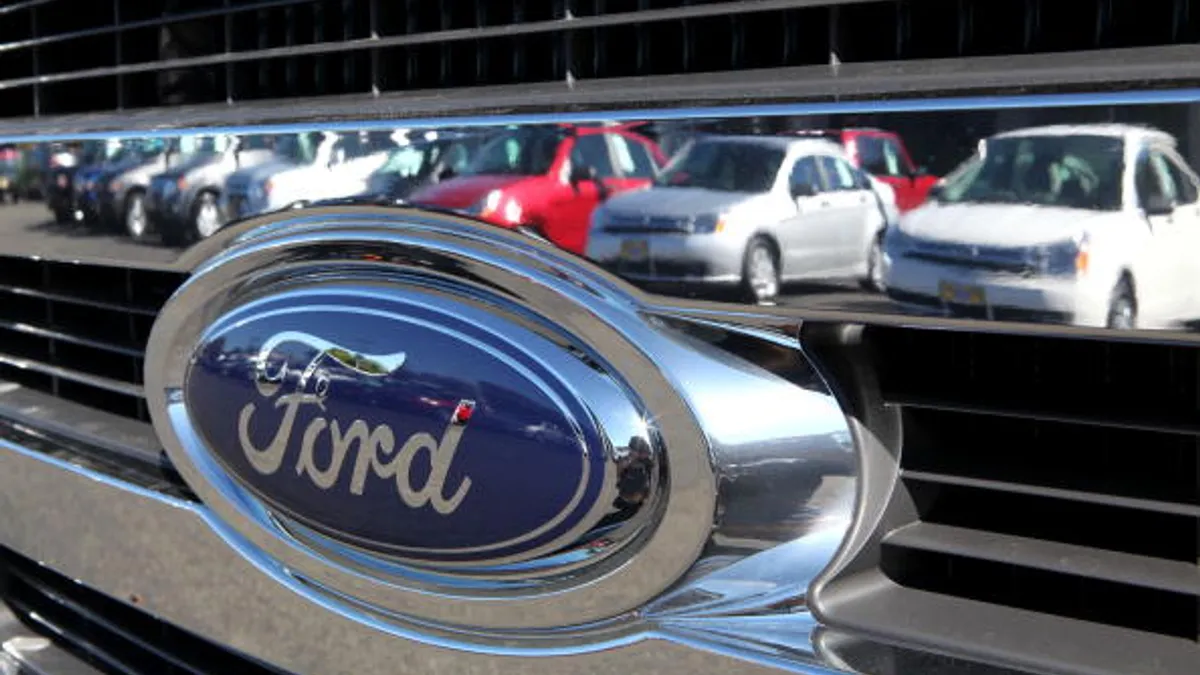Dive Brief:
- Ford is now close to hitting five million software updates to its vehicles twenty months into its deal with Google Cloud, according to Jim Farley, CEO at Ford. Through its partnership with Google Cloud, the automotive company has connected software to cars and gathered data from its vehicles.
- “We’re leveraging that data in new ways,” Farley said, speaking Tuesday during the Google Cloud Next ‘22. “Like telematics for our commercial customers and Ford Pro. We see our vehicles being able to do preventable diagnosis themselves for service.”
- Last February, Ford picked Google Cloud as its preferred cloud provider and entered into a six-year deal. The initial goals were to speed up the implementation of data-driven business models by relying on the data, ML and AI capabilities from Google.
Dive Insight:
Software updates aren’t the only tech enhancement Ford has achieved through the Google partnership.
“We doubled our number of AI-powered solutions last year by putting advanced AI and ML capabilities in the hands of our employees, not just our data scientists,” Farley said.
The company is also focusing on tech talent — from coders to software engineers.
“We're investing in a whole new generation of talent; coders, software engineers from so many tech companies want to join Ford because they know we're going to ship some great software and some great products,” Farley said.
This isn’t Google’s first partnership with a carmaker. In 2020, the company entered a deal with Renault, a French automotive company, to optimize its in-house industrial data management platform.
Mitsubishi too has a deal with Google, which began in in 2019 and has since reduced backend cloud computing costs by 50% through consolidated infrastructure solutions, according to Google. Mitsubishi has also increased the use of IoT across vehicles.
In fact, many big players in the auto industry have advanced their technological capabilities with the help of cloud. BMW Group processes 10 TB of data daily and built a data lake on AWS. Volkswagen, Honda, Toyota, Nissan, Volvo and Audi all have tapped AWS for its capabilities. Microsoft Azure has supported Bridgestone, Renault and Audi.
The strategic partnerships and multiyear deals between automotive companies and cloud providers show that the industry is pushing toward a future rooted in technology.
The global automotive cloud market, which encapsulates the vehicle-to-cloud communication network, brought in revenue of $16.5 million in 2021, according to Straits Research data released in August. It is expected to grow by a compound annual growth rate of almost 19% to reach $65.5 million by 2030.












